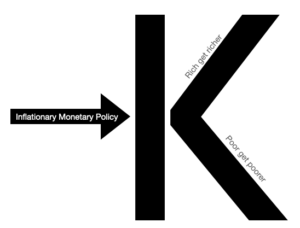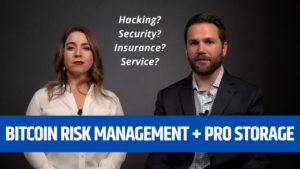
After being asked “What’s the difference between your Solo 401(k) and one offered by a custodian?” for the umpteenth time in the past few months, I figured it’s about time to write a post about it.
Why custodians exist
IRAs are governed by section 408 of the Internal Revenue Code. There they are defined as a retirement savings account trust where the trustee is a bank or a trust company (a trust company is basically a bank that holds assets but doesn’t make loans). This role is often referred to as custodian. Self directed IRAs have been in use for decades, and so self directed IRA custodians have been around for decades as well. For IRAs, there is no choice… you must hire a custodian to serve as trustee to your IRA.
The trustee role of a self directed IRA
The term “custodian” comes about in IRC Section 408 because when a bank or trust company serves the trustee role, they are not being trustee in the traditional sense. Usually the trustee of a trust makes decisions and has discretion over handling the income and assets of that trust. With an IRA, this normally isn’t the case. The bank or trust company is not making decisions or providing any other services other than custody (holding assets as an intermediary), and that’s why they are usually referred to as “custodian” – because they don’t provide any services other than custody.
Solo 401(k) is not required to have a custodian
Internal Revenue Code Section 401, which governs all 401(k) plans, does not issue any restrictions on who can serve as trustee. Not too many people have figured this out yet because the self directed Solo 401k wasn’t available until 2006. The benefits of a Solo 401k (such as higher contribution limits and reduced administrative requirements) come from the fact that you can play multiple roles. You can make higher contributions by serving the roles of employee/participant and employer. But it doesn’t stop there. The participant can also serve as administrator and trustee.
The role of administrator for a Solo 401k
An administrator simply keeps records. For a self directed Solo 401(k), a diligent investor is already keeping the records that an administrator would. These include bank statements, brokerage statements, copies of real estate purchase contracts and leases, and generally whatever paperwork accompanies a transaction of the plan. Since the self directed investor should already keep these records, it isn’t necessary or beneficial to hire another company to also keep the same records. Hiring an administrator for a self directed Solo 401k simply introduces unnecessary, undesirable fees.
The role of trustee for a Solo 401k
The trustee is simply the person or company who handles the transactions of the Solo 401k trust. As an investor, if you were to hire a custodian, which is optional, they will require that you submit an investment direction letter for each transaction. With a “self-trustee” Solo 401k, you would simply execute the transaction yourself directly rather than instruct a third party and then deal with their delay in processing and transactional fees.
The myth of additional custodian services
Prohibited transaction protection. Most custodians claim to protect the participant from prohibited transactions. This claim is contradicted by every custodian account application I’ve ever seen. In the custodian application, the participant must agree to hold the custodian harmless from any non-compliance with tax code (including prohibited transactions), and the terms of the application usually go to the extent of specifically saying that the participant is solely responsible for prohibited transaction avoidance. As you may already know, most written agreements contain a clause that says “this written agreement supersedes and takes precedence over any oral claims, promises or agreements”.
Miscellaneous services and support. Many customers of custodian companies are unpleasantly surprised when they attempt to get answers to questions in using their self directed IRA or Solo 401k. Questions are usually met with a statement such as “We don’t give tax, legal, or investment advice. You should contact an accountant, attorney, and/or investment advisor.” Some custodians offer directories of such professionals, but these directories will usually allow anybody to sign up to claim to be a knowledgeable advisor as long as they pay a fee or attend a brief seminar… defeating the purpose of the directory. Truly knowledgeable and experienced professional advisors are very hard to find. Many investors pursue self education after failing to find qualified professional advisors. Unfortunately, most custodians only offer “account opening” education… also known as marketing. Those who go beyond scratching the surface sometimes charge thousands of dollars for CD & DVD courses or live seminars that offer no ongoing interactive support.
How a Solo 401k from Nabers Group is different
- You are the trustee and administrator. We were the first self directed retirement plan provider to offer a self-administered, self-trustee Solo 401k plan. This eliminates the percentage-based fees and transactional fees that can make a custodian’s Solo 401k cost thousands of dollars per year. With us, the only thing you’re missing out on is transactional delays and costliness.
- We provide actual support. We have published volumes of information about real world, rubber-meets-the-road self directed investing topics, and we continue to add to our customer information archive. Contact us with any questions. 90% of the time your question has already been addressed by materials in our archive, and we’ll send over a link or attachment to those materials. If your question has never been addressed, we’ll publish materials on the issue and/or invite you to call into our internet radio show, Unlimited Investing Radio.
- Unrestricted investment platform. While it ironic, custodians who market their willingness to hold “special” or “alternative” assets often have company policies restricting legally allowable investments. Examples include denying a transaction because they think it is a prohibited transaction even if it is actually not as well as outright disallowing types of investments they don’t want to have to deal with such as international real estate.
Comparing costs
Custodians usually offer Solo 401k setup for a very small fee in order to attract new accounts. But don’t be fooled – read the ongoing fee disclosure and estimate your future costs yourself. There are often quarterly, biannual, and annual fees – including percentage based fees, transactional fees, periodic per asset fees, and sometimes even exorbitant fees for special assets such as international real estate. Custodian customers are often very surprised months later when they read about the fees that were taken out of their account.
With us it’s impossible for you to find surprise fees because you are the trustee of your own Solo 401k plan, and we don’t have access to your assets or funds. Our fees are very straightforward. We have one plan establishment fee, and it pays us for the document preparation. It is higher than a custodian plan establishment fee, but as long as you are going to be alive and invest for 3 or more years, our Solo 401k is much less expensive than a custodian’s. The only other cost you can expect from us is a small annual notification subscription fee. This is mandatory, and it pays us to notify you of any law changes that affect your Solo 401k plan documents. All things considered, our Solo 401k plan is the most flexible, most capable, and least expensive self directed retirement plan in existence.

With all of the unique benefits that a Solo 401k offers over the self directed IRA, I believe that (as a general rule of thumb) eligible self employed persons should always pursue the Solo 401k rather than the self directed IRA. With our plan establishment, you’ll be entering into an expert-supported relationship that will make you better equipped to achieve truly extraordinary investment results.
Recommended further reading: Why you should want to self-trustee your Solo 401k plan [coming soon]
![]() Subscribe ::
Subscribe ::  del.icio.us ::
del.icio.us ::  Digg this ::
Digg this ::  Stumble it ::
Stumble it ::  facebook
facebook
 ::
::  ::
::  ::
::  ::
::  ::
::  ::
::  ::
::  :: [What are these icons for?]
:: [What are these icons for?]


